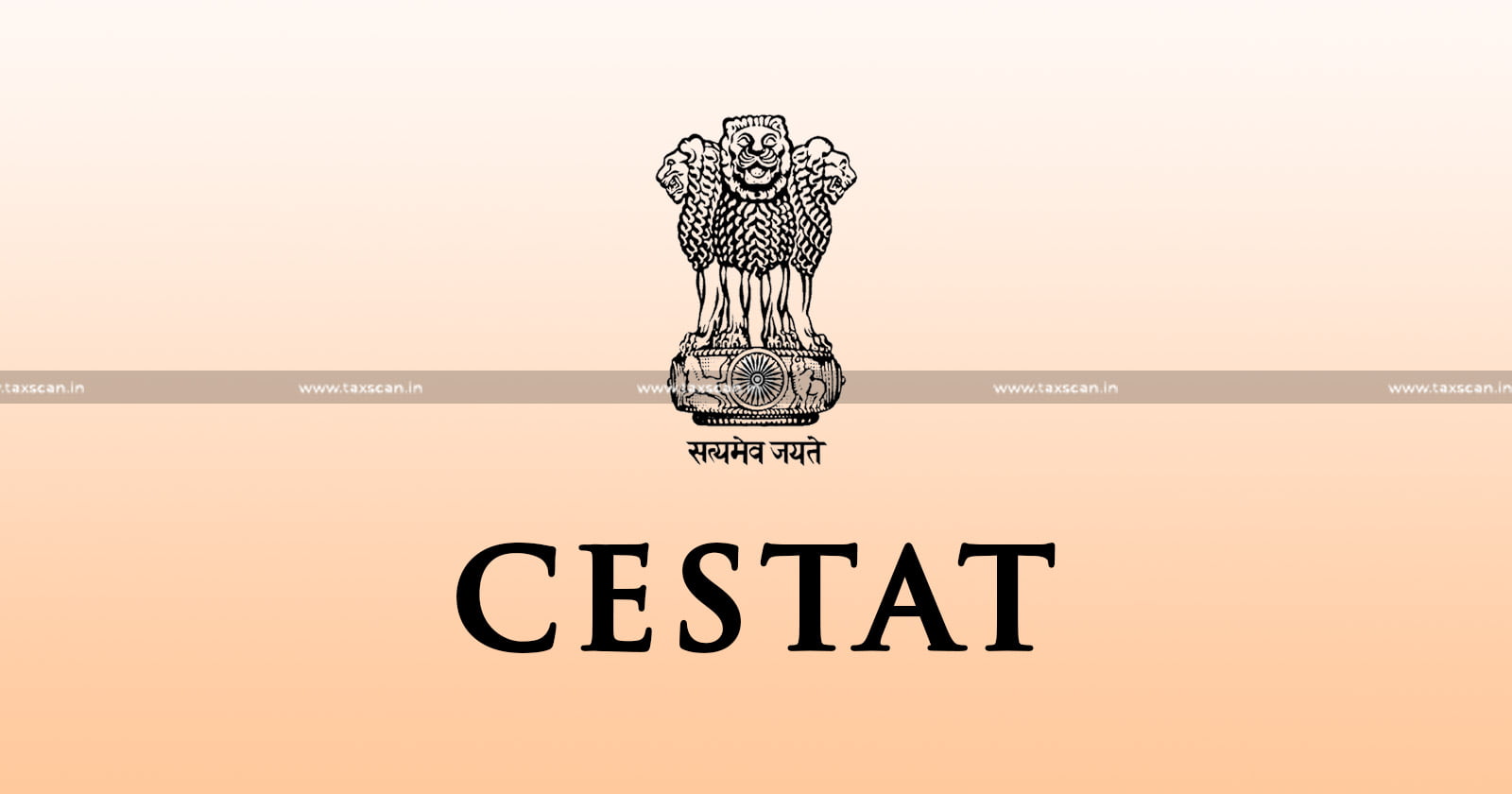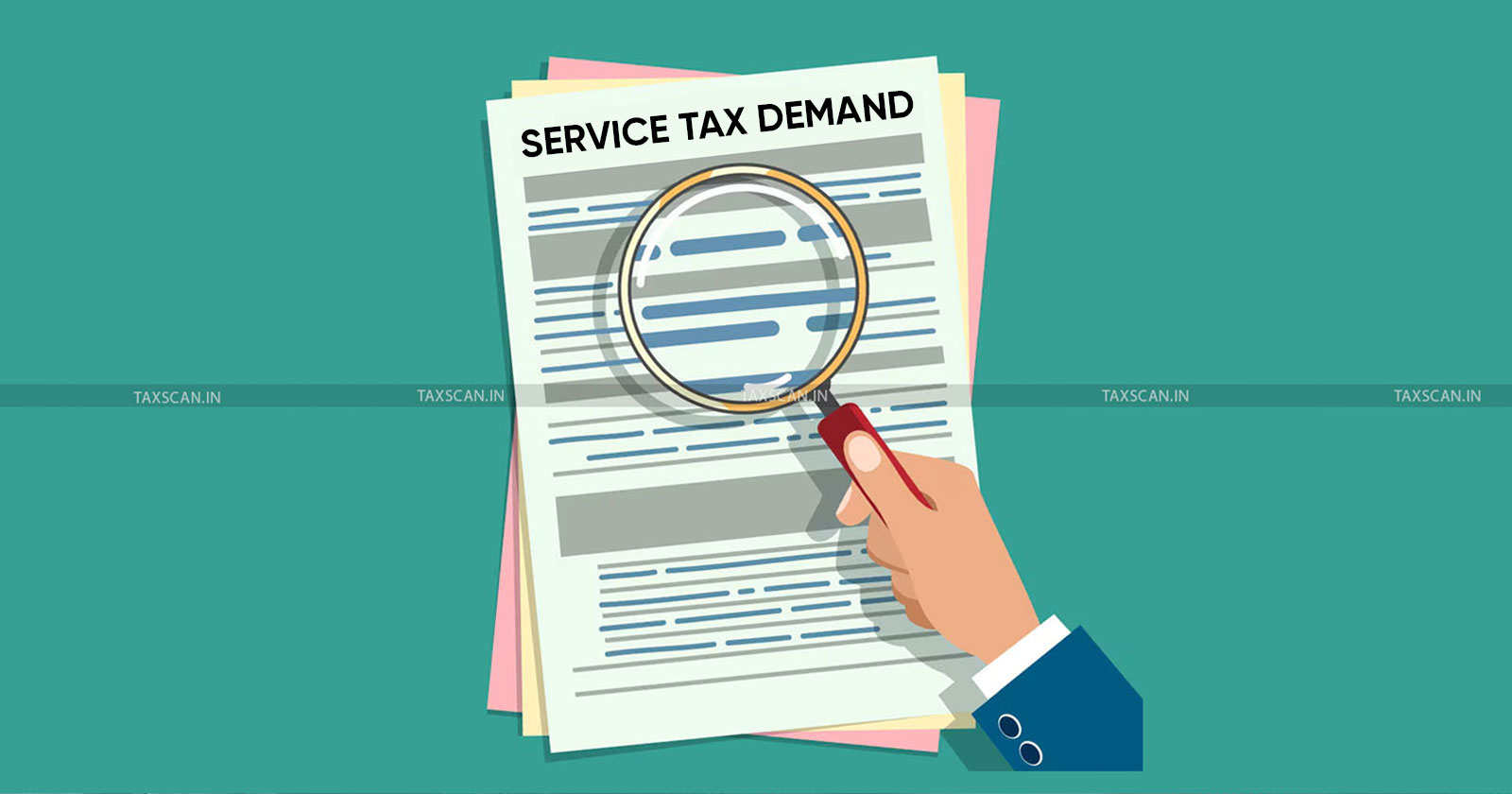Non-Verification of Electronic Evidence with Corroborating Statements as per S.9D of Central Excise Act: CESTAT quashes Demand Order on Alleged Clandestine Movement of M S Ingots [Read Order]
The Tribunal on evidence in the light of in the absence of compliance with Section 9D becomes non-admissible
![Non-Verification of Electronic Evidence with Corroborating Statements as per S.9D of Central Excise Act: CESTAT quashes Demand Order on Alleged Clandestine Movement of M S Ingots [Read Order] Non-Verification of Electronic Evidence with Corroborating Statements as per S.9D of Central Excise Act: CESTAT quashes Demand Order on Alleged Clandestine Movement of M S Ingots [Read Order]](https://images.taxscan.in/h-upload/2025/10/08/2094774-larger-period-of-limitation-central-excise-act-holder-for-valuable-consideration-excise-customs-service-tax-taxscan.webp)
The bench of the Customs, Excise and Service Tax Appellate Tribunal (CESTAT), Chennai, has set aside a demand order concerning the alleged clandestine movement of M.S. Ingots, ruling that statements recorded under Section 14 of the Central Excise Act, 1944, cannot be relied upon unless duly verified in accordance with Section 9D of Central Excise Act,1944.
Multiple Appeals were filed by different assesses involving arising out of the same Order in Original No.13/2014-Cex dated 29.12.2014, therefore appeals were heard together and are disposed of by a common order.
Stay Ahead with Expert Tax Insights – 2025 Edition
M/s Geetham Steels Pvt. Ltd., the leading appellant, was engaged in the manufacture of Mild Steel Ingots and held central excise registration under the Central Excise Act, 1944. The Directorate General of Central Excise Intelligence(DGCEI) conducted searches at the factory and related premises on 28 September 2010, seizing computers, pen drives, and various documents.
Based on the data retrieved from these electronic devices and statements recorded from employees and suppliers under Section 14 of the Central Excise Act, the department alleged that the appellant had clandestinely manufactured and cleared MS ingots without payment of duty during February 2010 to February 2012.
 Also Read:Clandestine Removal Must Be Established with Clear and Corroborated Evidence: CESTAT Rules Private Records, Unverified Shortages Insufficient [Read Order]
Also Read:Clandestine Removal Must Be Established with Clear and Corroborated Evidence: CESTAT Rules Private Records, Unverified Shortages Insufficient [Read Order]
The adjudicating authority confirmed the demand of duty amounting to ₹1,70,97,731 along with interest and equivalent penalty on the appellant under Section 11AC of the Central Excise Act, 1944. Penalties were also imposed on the company’s directors and associated entities under Rule 26 of the Central Excise Rules, 2002.
Aggrieved by the order, the appellants filed multiple appeals before the Tribunal, challenging both the validity of the evidence relied upon and the non-compliance of statutory procedures.
The appellants, represented by S. Durairaj, contended that the entire demand was based on statements recorded under Section 14 of the Central Excise Act and electronic data seized from pen drives and computers. It was argued that the adjudicating authority had not followed the mandatory procedure under Section 9D(2) of Central Excise Act, which requires examination of witnesses who made such statements and provides the assessee an opportunity for cross-examination.
It was further submitted that the statements and electronic data could not be treated as admissible evidence unless properly tested under Section 9D(2). Further, judicial precedents including Anvar P.V. v. P.K. Basheer (2014) were iterated to assert that evidentiary safeguards are essential to ensure fairness in quasi-judicial proceedings. It was further contended that the non-compliance with Section 9D vitiated the entire adjudication, as the alleged admissions and statements formed the sole basis of the demand.
 Also Read:Challenge on Service Tax Demand on ‘Mandap Keeper Services’: Supreme Court Stays Chhattisgarh HC Remand Order [Read Order]
Also Read:Challenge on Service Tax Demand on ‘Mandap Keeper Services’: Supreme Court Stays Chhattisgarh HC Remand Order [Read Order]
The Department, represented by Sanjay Kakkar and Anoop Singh, contended that the statements recorded under Section 14 were voluntary and corroborated by documentary and electronic evidence recovered during the investigation.
It was submitted that the requirement under Section 9D(2) of Central Excise Act was not mandatory in every case and that the statements could be relied upon when the adjudicating authority found them credible and consistent with other evidence. It was also argued that the appellants had not raised any objection regarding Section 9D compliance before the adjudicating authority and hence could not raise the issue at the appellate stage.
The Bench comprising of Ajayan T V, Judicial Member, and Vasa Seshagiri Rao, Technical Member, held that compliance with Section 9D of the Central Excise Act, 1944, is mandatory before any statement recorded under Section 14 of Central Excise Act can be used as evidence in adjudication proceedings. The Bench observed that the section provides a specific procedure whereby the adjudicating authority must first examine the person who made the statement and allow the assessee an opportunity to cross-examine them.
The Tribunal reasoned that statements recorded during investigation cannot be treated as substantive evidence unless they pass the test prescribed under Section 9D(2). The Bench further clarified that a plea of non-compliance with Section 9D can be raised at the appellate stage since it involves a question of law.
 Also Read:No Service Tax on Packing of Bulk pack into Retail Packs as Job Work, amounts to Manufacture: CESTAT deletes Demand, Penalty and Interest [Read Order]
Also Read:No Service Tax on Packing of Bulk pack into Retail Packs as Job Work, amounts to Manufacture: CESTAT deletes Demand, Penalty and Interest [Read Order]
The Tribunal on electronic data retrieved from pen drives and computer hard disks seized during searches to be non-admissible in the absence of compliance with Section 9D and the required certification under Section 36B(4) for electronic evidence.
The Bench referred to the High Court of Bombay in Bipin Badani Vs. Union of India (2023) made a pari materia observation of the provisions of Section 138B of the Customs Act, 1962, holding that the failure to adhere to this procedural safeguard violates the principles of natural justice.
Accordingly, the Tribunal ruled that the demands and penalties confirmed by the adjudicating authority were unsustainable.
Thus, the appeals were allowed with consequential reliefs.
Support our journalism by subscribing to Taxscan premium. Follow us on Telegram for quick updates


